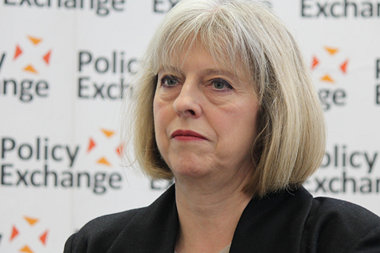There is an intriguing contrast between the predictive and hard data on the economy emerging since the Brexit vote.

Predictive data such as the much-quoted Purchasing Managers’ Index is essentially based on individual speculation as to future trends and true to form it suggested the economy was going to tank. Hard data records the facts and they show a very different story. Exports are at their highest level for two years.
Grocers saw a 0.3% rise in sales in the 12 weeks to mid-August which was the best result for months and manufacturers reported orders “comfortably above the long-run average” according to the CBI. None of this means the economy is immune to Brexit.
There will undoubtedly be short-term repercussions following the vote to leave the EU. Indeed it would be astonishing if there were not. But what is crystal clear is that consumers are not deciding whether to buy a new washing machine or TV because of Brexit.

They are simply getting on with their lives. Despite the worst excesses of Project Fear we may well avoid recession entirely and would have done so without the Bank of England’s ill-judged rate reduction.
As far as the residential market is concerned Persimmon among others recently reported a big increase in viewings and their shares, like others in the housebuilding sector, recovered sharply having fallen immediately after the vote. All of which suggests that moving house is not a Brexit issue either.
That does not mean the sector is without its problems but many of them have more to do with the legacy of Messrs Cameron and Osborne than with concerns about the UK’s future place in world markets. While the top end of the residential market has been hit by many factors both at home and abroad, the Treasury fixation with KYC requirements and a punitive SDLT regime left many foreign investors looking to places such as Dubai rather than the UK as a safe home for their investment. It is a salutary lesson in being careful what you wish for.

Fixated as it was by home ownership the previous Downing Street regime also funnelled billions into soft loans to buyers and thereby simply inflated prices. Changes to SDLT have been disastrous particularly for buyers in the South East but also for Treasury receipts.
By penalising such a large swathe of the London housing market George Osborne actually managed to raise less revenue. By phasing out mortgage interest relief for private buy-to-let owners and imposing an additional 3% SDLT he managed to cut off a valuable source of urgently needed rental property without affecting the cost of ownership for new buyers.
Sending a clear message
I’m a big fan of our new Chancellor Philip Hammond. He knows his Autumn Statement needs to underpin domestic confidence while sending a very clear message to the rest of the world that the UK is open for business and determined to remain a dynamic and growing economy.
He is likely to cut corporation tax perhaps to as low as 15% but domestically a man who has made his own fortune and actually understands the property market will not be blind to the obvious need for change. He can reform SDLT to increase Treasury receipts while stimulating the housing market.
If at the same time Croydon MP Gavin Barwell, the new housing and planning minister with responsibility for London, gets to grips with the planning system which remains manifestly unfit for purpose we might just have a chance of hitting those housing numbers that are so vital to our national wellbeing but have so resolutely eluded us in the past.
Steve Norris is chairman of Soho Estates and BNP Paribas Real Estate
































No comments yet